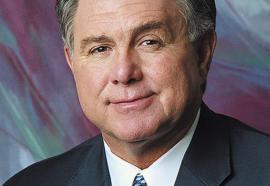Where Is Super-FERC?
Sweeping revisions to Order 888 are needed before true wholesale competition can take place.
There’s been a lot of talk in the industry about new super powers for market enforcement, conferred by Congress on FERC in last year’s energy legislation. But this hasn’t been the case entirely. Many believe that FERC still labors at a disadvantage.







